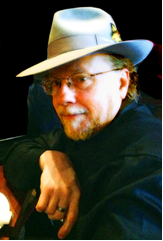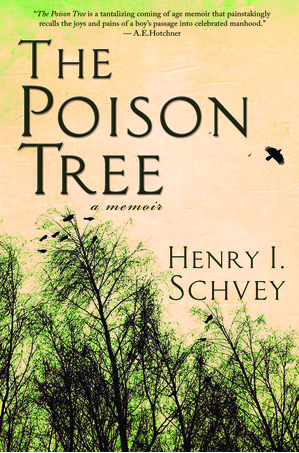Share the post "Music to the Muse"
 by Mark W. Tiedemann
by Mark W. Tiedemann
I recently read Richard Powers’ new novel, Orfeo, and it caused me to think about the life I’ve spent listening to the music I listen to. If you love—and I mean love—music, you should read this novel. Powers has always mixed music liberally in with his fabulous yarns, but this one is so sunk in music one can practically hear it as one reads.
I grew up listening to the music my parents played fairly regularly on their gigantic Capitol hi-fi, a blond-oak box built like a hope chest with a Gerard turntable that exuded a warm smell as the tubes within grew hotter, a cozy aroma that sometimes made me think the future would be like this. They had a wild, eclectic collection of records—Chet Atkins, Bobby Darin, Montovani, Chopin (as played by Liberace!), the Peer Gynt Suite by Grieg, movie soundtracks, Julie London, and many others. My favorites turned out to be the classical albums. And Gershwin, which sort of qualified in my child’s mind as classical. To this day I love Grieg’s Peer Gynt.
One of the consequences of this, however, was that my taste developed early and did not leave room for schoolroom diddies or, later, the minute-forty to two-minute-twenty cuts that popular music was churning out by the cartload. We had one of Elvis’s early records, with Heartbreak Hotel and Hound Dog, but I spent many years utterly impatient with what my peers thought was great music (which is addressed in one hilarious passage in Orfeo). I preferred Bach to the Beatles, Haydn to Herman’s Hermits, Rachmaninov to the Rolling Stones.
This did not make me particularly popular.
However, the first time I heard Santana play I was hooked. Likewise Keith Emerson (with his first band, the Nice) and then—
Music subsequently became so important to me that I nearly abandoned everything else to pursue it. But I was not temperamentally suited to the music “scene.” Of the many reasons for this, I think ultimately the central one is that I end up living inside the sound to such an extent that paying attention to all the necessary details of making it—for an audience, that is—become a muddled mass of inconsequentials. Music overwhelms me.
There are a few things I can do while in this state. Write is one of them.
I use music to set mood, open channels of creative flow, place myself in a zone of creativity. Sometimes it doesn’t work very well. When it does, the experience itself is a marvel. (As I write this I’m listening to a newly released recording of Beethoven’s Emperor Concerto by Yundi and the Berlin Philharmonic.)
I know many writers who write to music. They all have their preferred idioms, settings, requirements. What primes the pump for one may rob another of any desire to work. It is as completely personal as it is possible to be, a writer and his or her music.
I have basic rules. Almost no vocal music will do. Occasionally I’ve used foreign language vocal music and choral music, but generally I only listen to instrumental when I work.
No “pop” tunes. The Ventures will not do, even though I like that sort of thing otherwise. Extended tracks, please. When I get into a groove I want to stay in it and short tracks tend to kick me out.
After that, it’s just taste and the mood for that particular day.
It’s not all classical. While many of the stories in my new collection, Gravity Box, were written to Stravinsky or Bartok, others were written to Tangerine Dream, Steve Joliffe, Lightwave, or Larry Fast. A few were written to Pat Matheny.
Jazz is a big one for my when I’m working on a novel. Miles Davis gave me a lot of headspace for Remains, but then so did Chick Corea and, for a change of pace, Rick Wakeman.
Metal of Night, appropriately enough, was written to a lot of high-energy guitar—Satriani, Steve Vai, Steve Morse—leavened by, curiously enough, Aaron Copland. Don’t ask me, I can’t explain the strange shifts of the unconscious.
I hadn’t given much thought lately to why music—particularly, certain kinds—does what it does to me. There are “triggers” set off by certain combinations of key and pitch and phrasing that open vaults of emotional riches. I’m not altogether sure I want to understand the process, but it has been one of the most amazing things in my life. Reading Richard Powers’ descriptions of aural nirvana, so wonderfully realized, I kept saying under my breath “Yes, yes, that’s it, that’s how I feel!”
In my youth I encountered many people who simply did not hear what I heard. It made me impatient and angry sometimes. What they chose to listen to instead was the sonic equivalent of wrapping paper. No substance. As I grew older I realized that many people did not know how to hear music. Others did not care. It is the latter that I do not understand. But I’ve found—often—that such deafness goes with a suite of aesthetic deficits. I suspect for many such things have been taught them as only window dressing.
Me, I want a soundtrack for my life. And it has to reflect who and what I am. Or at least inspire me to be what I aspire to be. For that, the music must be layered, evocative, complex (not complicated—that’s different)—in a word, rich. Just like the books I prefer to read or the art I might choose to hang on my walls. It has to open the occasionally shuttered and locked rooms in my head and let the visions out.
Some of those visions I manage to capture and put on paper.
That requires a fascinating key.
—————
Mark’s most recent book is Gravity Box and Other Spaces. Meet Mark in person and get a signed copy of Gravity Box during his book launch on 25 June at Left Bank Books.



